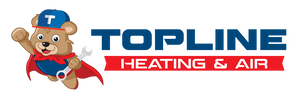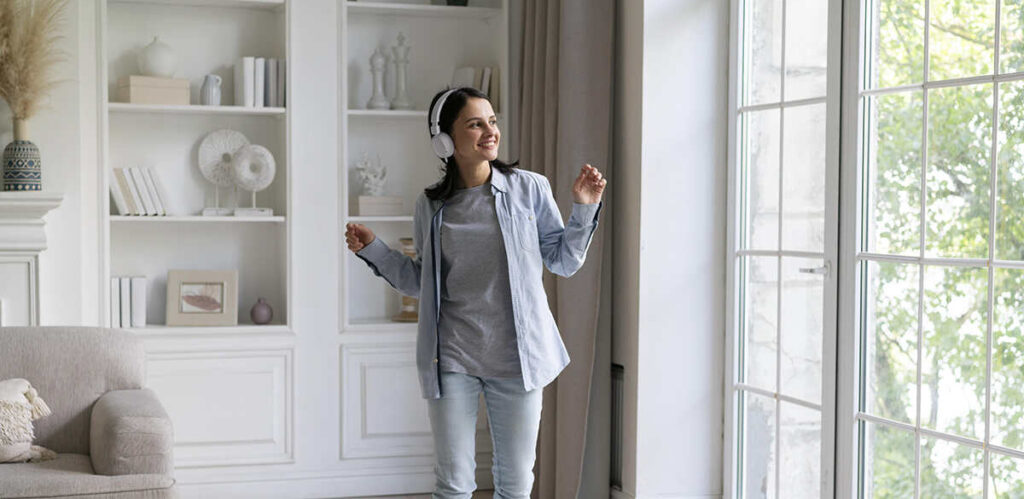Need help improving your home’s indoor air quality? Contact our Topline Heating & Air team at (717) 628-6825!
Good indoor air quality changes how you and your family enjoy your home. Sneezing, coughing, and stuffy noses make life uncomfortable, so ensuring that the problem doesn’t lie within your home’s air should top your priority list. If you’re wondering how to improve indoor air quality in your home, check out the eight tips below from your local provider for heating and air conditioning services in Honey Brook, PA.
1. Clean Your Home Regularly
Every home collects a significant amount of dust and dirt, especially if you have a dog or cat shedding pet dander in your house. With regular dusting, sweeping, and vacuuming, you can keep these internal allergens from settling in and making it difficult to breathe. Many homeowners clean at least once a week, improving their overall indoor air quality.
2. Replace Your HVAC Filter
A dirty HVAC filter fails to catch lint, dust, bacteria, and other dangerous pathogens, but the air coming into your home kicks them back up and spreads them through the air. Check your HVAC filter at least once a month and replace it as necessary. Ensure you place the filter in properly, as each side doesn’t filter the same as the other one.
3. Keep Pollutants Out of Your Home
Indoor air pollutants don’t just get into your home when you open the door. You should know what other items can introduce pollution into your house, such as:
Radon
Sometimes, people unknowingly build homes above radon pockets, which can cause exposure to radioactive health hazards. You can get a home test kit to test for radon, then look for more information on this dangerous gas so you can take steps to better radon-proof your home better.
Smoke
Whether you smoke or someone in your residence does, ensuring that no one smokes inside lowers the chances of choking, coughs and stuffy sinuses. Smoke can cling to clothing and other household items, so even if you stop smoking inside, it may be weeks before the smells and uncomfortable side effects decrease.
Formaldehyde
Among other dangerous volatile organic compounds, or VOCs, formaldehyde releases into the air over time and can cause respiratory diseases like bronchitis after constant exposure. Usually found in composite woods used in new furniture, this chemical can continue to affect air quality for around two years.
Cleaning Products
While cleaning your home can help reduce the number of pollutants in the space, another answer to how to improve indoor air quality consists of researching your cleaning solutions. Glass cleaner, oven cleaner, surface disinfectants, and other cleaning chemicals can release harmful gasses into your home that negatively affect air quality.
4. Maintain Clean HVAC Systems and Air Ducts
Over time, HVAC systems can collect the dust and debris that comes through the return register and escapes the grasp of the air filter. As these materials build up, they can blow back into your home and lower your overall air quality. Regular HVAC system maintenance and air duct cleanings can reduce the amount of dust that comes into your home and help you achieve a healthier air quality.
5. Use Your Bathroom Vent
Taking a shower generates a lot of heat and water, creating a cloud of humidity that can flow throughout the rest of your home when you open the bathroom door. Bathroom vents not only help filter out foul odors but can decrease the amount of humidity in your bathroom before the generated excessive moisture gets into your home.
6. Turn On Your Kitchen Hood Vent
Like bathrooms, working in your kitchen generates a lot of smells and moist, heated air. Instead of letting the humidity build up and move throughout your home, you can use your kitchen hood vent to either filter the air coming up from your stove or send the odors and humidity outside.
7. Check Your Other Vents
Airflow throughout your home keeps your air quality good, clean, and safe to breathe. Make sure that the air keeps moving by checking your vents and removing anything blocking them. You can also remove vents and scrub them to ensure that the grills don’t have any hidden dust or lint clinging to them.
Another place to check consists of your dryer’s vent. These vents can clog easily with lint, making unchecked dryer vents a prime cause of house fires. Keep your air cleaner and your home safer by regularly cleaning out your dryer vent.
8. Install an Air Purifier, Humidifier, or Dehumidifier
Improving your home’s indoor air quality often means removing certain allergens or pathogens from the air and adding or subtracting the amount of humidity in your home. Homeowners can purchase small machines that target the air in particular rooms or opt for a larger system that works in tandem with their central HVAC system.
One of the more high-tech forms of air purification consists of a UV (ultraviolet) light filter. With this type of air purifier, an HVAC technician installs a UV lamp in your main air duct. The lamp shines strong UV lights over a patch of the duct, hitting the air as it passes through and killing microbes and pathogens.
What Can Better Indoor Air Quality Do For Me?
Improving your home’s indoor air quality helps create a safe, healthy environment that keeps your family and friends comfortable. Allergy symptoms that you can avoid with better indoor air quality include:
- Coughing
- Headaches
- Sore throats
- Stuffy noses
- Itchy, watery eyes
- Respiratory discomfort
Enjoy Cleaner Air in Your Home with Topline Heating & Air
Keeping a happy, healthy home includes ensuring you have great indoor air quality. Whether you want to improve your home with a humidifier, dehumidifier, or air purifier, ridding your home of allergens, mold spores, and other pathogens makes your home more comfortable.
If you’re wondering how to improve indoor air quality, start with indoor air quality testing by Topline Heating & Air. Call our professional air quality specialists in Honey Brook, PA, at (717) 628-6825.



